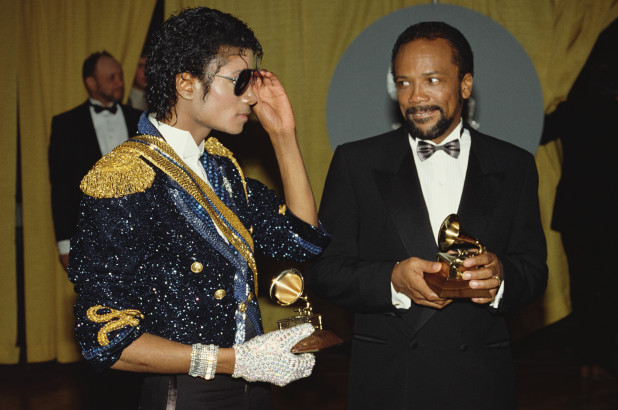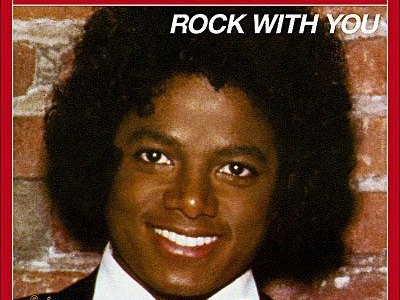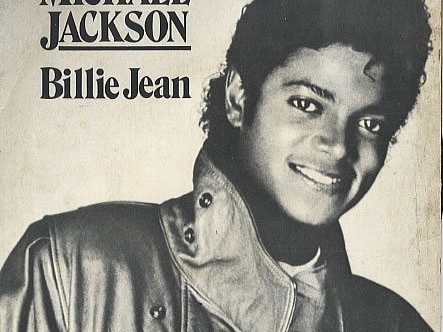Just in time for MJ Mondays! I know the irony is not lost on me. First off shout out to our roving photog Hope West who suggested that I might want to address this while it was still bubbling. Also, on the for real for real while I have your attention you really should check out Hope’s work like this great coverage of Chanté Moore’s recent performance in the ATL.
Ok now back to the subject at hand… I’m sure you’ve all read the Quincy Jones Vulture Interview by now. If you haven’t here you go. So a couple of things right off the top here’s the quote in question that we are discussing:
“I hate to get into this publicly, but Michael stole a lot of stuff. He stole a lot of songs. [Donna Summer’s] State of Independence and Billie Jean. The notes don’t lie, man. He was as Machiavellian as they come.” – Quincy Jones
Some additional context surrounding the quote…
“State of Independence Originally written by Vangelis and longtime Yes front man Jon Anderson, “State of Independence” was recorded by Donna Summer in 1982. Jones produced Summer’s version, Michael Jackson helped out on backing vocals, and the song’s central riff does sound awfully similar (albeit faster) to the iconic bass riff on Jackson’s hit single “Billie Jean.” It should also be noted that, last year, Jones won a lawsuit over a royalties dispute against Jackson’s estate.” – David Marchese for Vulture
So let’s get into the main source of contention, the dominant synthesizer riff in “State Of Independence”. Just listen to the first six seconds of the song or so. Now the riff is comprised of these four notes if you are keeping score at home: F#, A, B and E. Take a listen.
Ok now take a listen to “Billie Jean”.
Now as was stated in the article context the bassline to “Billie Jean” is slower than the prominent keyboard riff in “State Of Independence”. The other interesting thing here is that where each uses four notes the combination of those notes are just a little different for “Billie Jean”. There’s something else I need to point out first. “Billie Jean” is for the most part a Blues song structure wise. Now there are some things that are done to that structure that are interesting that I will also point out in a second that makes the song not your typical Blues structure but I’d say more or less you can describe the song as a Blues.
So let’s go back to our score card. “State Of Independence” the four prominent notes: F#, A, B and E. The opening of “Billie Jean” the four prominent notes: F#, C#, E and B. But wait those aren’t the same four notes. I thought Quincy said the notes don’t lie? They don’t. You see Michael made everyone wait until the 5th bar of the verse to move the pattern up a fourth(going to the IV i.e. Blues) before he revealed the “State Of Independence” pattern but what he did is instead of starting with the F# he started the riff on the B. But when you analyze the notes and the pattern it’s the same except for beginning on the B. So the notes for “Billie Jean” once we get to bar 5: B, F#, A and E again I’m just giving you the notes not the rhythm and sequence per se.
But wait there’s more! You see while the bassline and synth riff is more out in the open listen to 1:08 – 1:20 of “State Of Independence” on this instrumental break after the chorus you hear a wonderful color change through the use of a D Major Chord and that is the result of going to that particular chord from the home key of B Major. I’ll spare you going down the rabbit hole of my musical nerdiness. Suffice to say you hear and feel that change because one of the most important notes to the home key of B, D# was temporarily removed when the shift was made to the D Major chord.
Now go listen to the pre-chorus on “Billie Jean” beginning at the 1:10 with “People always told me…” there’s a chord used there to create tension. That chord just happens to be a D Major. Now using a D Major chord in the key of F# minor(which is the key “Billie Jean” is in) is not way out there at all. In fact it really is ingenious how it’s used to create suspense as you wait for the V Chord the C# to take you back home. Let’s just say that I find the use of that particular chord interesting.
So look the verdict here is this: In my opinion there really is no verdict. Composers have been “borrowing” since there’s been music. Some are very adept at it. Some are very open about their influences. Stevie Wonder has gone on record to say that “Livin’ For The City” was directly influenced by “Summer In The City” by The Lovin’ Spoonful. That’s Stevie Wonder. Also, I know no one in 2018 is surprised that musicians borrow ideas when entire genres and careers have been based upon absolutely nothing but borrowing. What’s funny about that is some of those folks having the audacity to think they’re bringing anything new to the party.
If there was to be a beef, the beef would be between Michael Jackson the sole composer of “Billie Jean” and Vangelis and Jon Anderson who co-composed “State Of Independence”. Now er uh there is someone who was in the room when both of these songs were being put down. You know I don’t have nothing but love for Quincy Jones, I mean like you have no idea how much time I’ve spent studying his arrangements and productions but on this one right here all I can do is…
P.S. To be quite frank and honest I’m glad Quincy said what he said. Not in spirit of disparaging anyone’s memory or integrity. No, I’m coming from a place of it’s good for folks to know how things go down.
P.P.S. To the whole lot of commenters on YouTube suggesting that MJ sampled “State Of Independence” Shh. Just shh. Some things you shouldn’t say in public because they may make you look foolish. Were there samplers in 1982? Yes. Were they being used in the manner that we would come to know towards the end of the decade of the 1980’s? No. So again, please, please, please be quiet.
Ivan Orr is a multi-instrumentalist, composer, performer, and writer. A native of Charlottesville, Virginia Ivan was involved with the forming and nascent days of The Music Resource Center as its first Program Director. A graduate of Virginia Commonwealth University’s Department of Music, Ivan currently resides in Richmond, VA where he maintains an active performance and production schedule while serving as the Music Editor for Grown Folks Music, a position he has held since 2010.
RELATED POSTS
October 28, 2009
Michael Jackson Medley
August 29, 2014
#Birthdays: Michael Jackson
October 22, 2009







